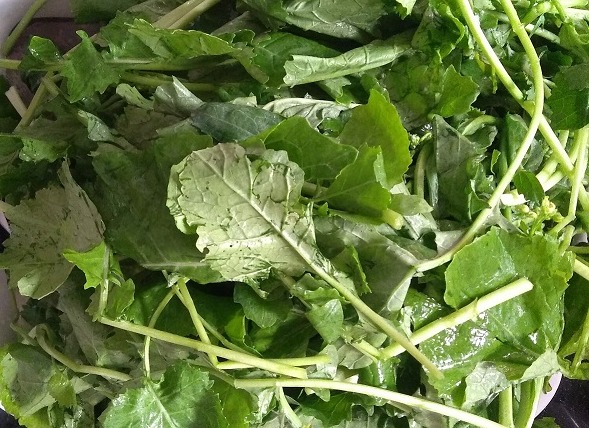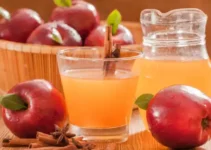What should one eat while having COVID-19?
One question that arises in people’s minds is what to eat and what not to eat if someone tests for COVID-19 and Pneumonia. Proper nutrition and hydration are essential because they help to manage the symptoms. A well-balanced diet can optimise the system’s function and improve metabolism, thus helping prevent chronic symptoms related to COVID-19. It is recommended that a diet with fresh and unprocessed foods be included in your daily diet, besides vitamins, minerals, dietary fibre, protein, and antioxidants.

Symptoms of Covid 19 virus
The symptoms of this virus vary significantly from person to person. As per the CDC (Center for Disease Control and Prevention), the foremost common symptoms an affected person faces are:
- Fever
- Dry cough
- Shortness of breath
- Body ache
- Muscle pain
- Fatigue
- Throat infections
- Gastro-Intestinal Symptoms like Stomach ache, Diarrhea
- Loss of sense of taste and smell
So, a diet is also planned according to your symptoms, severity, and likes and dislikes. A diet varies from person to person.
Role of drinking water in Covid 19 patients
Drinking water is essential if you get sick, especially after a fever or diarrhoea, which can cause you to sweat out water. Staying hydrated with water and natural liquids is essential to switch fluid losses and thin respiratory secretions, whether or not you are thirsty. If respiratory secretions aren’t thinned, it can cause pneumonia. Take sips of water, and try infused waters with fruit, mint, and lemon for a better taste. Instead of taking lots of water, Fluids will be taken in the following options:
- Water
- Tea with honey
- Vegetable broth
- Fruit juice
- Vegetable Soups
- Electrolyte drink
- Green milk
If you’ve got proof of coughing, tea with honey is reassuring and will help to calm a cough. Special electrolyte drinks could also be required if you’re having trouble eating or experiencing diarrhoea or vomiting. Juice can even facilitate you to urge some nutrients like carbohydrates, which offer energy and make it easier to hydrate since it’s tasty.
Eight diets for COVID-19 and Pneumonia patients
Protein-rich diet
Adequate protein intake is required to forestall muscle loss and maintain metabolic functions.
Protein deficiency is additionally connected to impaired system function and might worsen symptoms and thus end in an extended recovery time. Try to include a bit of protein-rich food in each and each meal. One should take 2-3 servings of pulses, soya, milk & milk products, nuts, and seeds. Also, besan, sattu, khichdi, peanut, paneer, curd, and mushrooms are excellent options to be incorporated into the daily diet.
2. Healthy fats
Reduce excessive fat intake, be it refined oil, and avoid using saturated fats. Choose cooking methods that need less or no fat, like steaming, grilling, or sautéing rather than frying foods.
3. Plenty of fruits and vegetables
Include a minimum of 5-6 servings of seasonal fruits and vegetables in your daily plan.
Vitamins, minerals, and antioxidants in colourful fruits and vegetables facilitate a speedy recovery. Fruits may be taken as raw or will be added to your milkshakes or smoothies. Seasonal vegetables are often taken in forms like cooked, sautéed, steamed, boiled, or raw within the variety of salad. But confirm all vegetables and fruits should be cleaned thoroughly and proper hygiene is to be followed.
4. Probiotics
Recent research has shown that probiotics help in boosting the system. Healthy bacteria are found in probiotics, which allow the gut and intestinal tract to repulse the disease-causing germs. Yoghurt, kefir (a fermented drink made up of Milk), kimchi (fermented Veg. Salad), and kombucha (fermented green tea) are loaded with probiotics.
Probiotics support the expansion of delicate bacteria, which are crucial in balancing your body’s good bacteria and are stored within the gut. These healthy bacteria help in balancing your digestion, immunity, and metabolism.
5. Super fighter water-soluble vitamin
Vitamin C protects you from infection by stimulating the formation of antibodies and boosting immunity. Antioxidant also acts as an antioxidant and fights with free radicals in the body. Attempt to include more antioxidants in your diet by incorporating citrus fruits like lemon, oranges, sweet lime, grapefruit, papaya, strawberries, guavas, kiwi, and vegetables like red bell pepper, tomatoes, and broccoli in your daily diet.
6. Zinc-rich foods
Across the globe, zinc has also been recognised as one of the indispensable components in standard COVID-19 treatment plans. Zinc has been labelled as the most important nutrient that can fight against Coronavirus and pneumonia. Zinc is an essential nutrient which cannot be stored or produced in the body. It needs to be supplemented through diet. Adequate zinc is crucial for the development and functions of the immune system and may help wounds heal. Zinc can be found in plant sources such as beans, nuts, whole grain cereals, milk, pumpkin seeds, and fortified breakfast cereals. Regular dietary intake is recommended to maintain its optimum level. In case of its deficiency, supplementation is advised after consulting a physician.
7. Selenium
Though selenium is not widely popular for improving immunity, it works as effectively as vitamin C and zinc. It also keeps your metabolism optimum. As far as the role of selenium in COVID-19, it has strong antiviral properties that can be therapeutic for you if you consume this mineral in the right amount. According to a study published in the American Journal of Clinical Nutrition, your immune system requires selenium to produce the infection-fighting WBC. And it also prevents and stops viral replication in your body. Thus, consuming enough selenium-containing food can also control various diseases’ progression. Therefore, you must include this significant nutrient in your daily diet during the pandemic. Every day, your body needs around 70 to 80 mcg of selenium. For vegetarian sources, you can have nuts, pumpkin seeds, brazil nuts, broccoli, spinach, grains, and dairy products to prevent selenium deficiency.
8. Small frequent meals
Frequent meals at regular intervals should be incorporated into your daily diet plan. Every 2-3 hours helps fulfil your nutritional requirement and prevents GI-related complications like inflammation, gastritis, bloating, heaviness, and acidity.
Diet plan for COVID-19 and pneumonia patients
One can follow this sample meal plan with three small, balanced, frequent meals and light snacks throughout the day to give you an idea of what to eat as part of your quarantine protocol. You can mix and match the following according to your likes and dislikes.
Early Morning (6 – 7 am)
- one glass of lukewarm lemon water
- five soaked almonds, walnuts and anjeer
Breakfast (After 30 minutes)
- Oats porridge with nuts and seeds or Cracked wheat porridge and seeds
- One bowl of fresh Vitamin C rich fruits
Mid-morning
One glass of papaya smoothie with chia and flax seeds or one bowl of fruit with chia/pumpkin seeds
Lunch
- 2 Chapattis
- 1bowl Vegetables ( Beans/Cauliflower/Broccoli/Leafy vegetables/Mixed vegetables
- 30-40 grams of Paneer
- 1 cup curd
Post lunch
- Kefir/ Green Tea/ Coconut Water
Mid-evening snack
- Boiled sprouts or roasted makhana/ channels – ½ cup
Before dinner
- Carrot/tomato/spinach/broccoli Soup – 1 cup (without spices or butter)
Dinner
- one bowl of vegetable khichdi
- 1 cup curd or
- 2 Moong dal cheela with stuffed paneer or
- 2-3 pieces of Idli with vegetable sambar or
- 2 Chappattis with seasonal vegetables 1-2 Katori
- Dal 1 Katori
- Paneer 2-3 cubes as salad
Bedtime
- Warm skimmed milk– 1 glass
Conclusion
Proper nutrition is crucial for health, particularly when the immune system might need to fight back. Limited access to fresh foods may compromise our efforts to continue eating a healthy and varied diet. It can also potentially lead to increased consumption of highly processed foods high in fats, sugars, and salt. Even with few and limited ingredients, one must try to eat healthily and support the body in fighting the virus. One can also do breathing exercises to overcome the disease.







authentic Information, truly amazed.